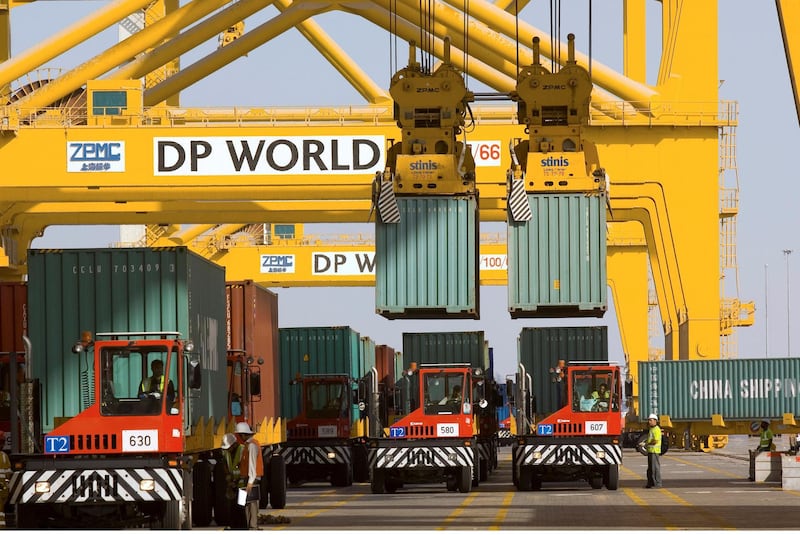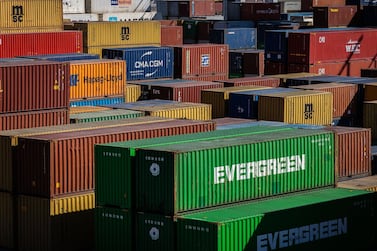Global ports operator DP World said it agreed to acquire a 60 per cent share in South Korea's Unico Logistics after it posted a drop in its second quarter shipping container volumes as the Covid-19 pandemic hit global trade.
The transaction to acquire a majority stake in the Seoul-based logistics company is subject to regulatory clearances and is expected to close in the fourth quarter, DP World said in a statement on Monday.
The acquisition is in line with DP World's strategy to become an end-to-end supply chain solutions provider. The deal will "drive synergies" between Unico and DP World operations in Asia Pacific and Europe, while further expanding the Dubai company's logistics capabilities.
The company's gross container volumes fell 8.8 per cent on a reported basis to 16.7 million Twenty-Foot Equivalent Units (TEUs), compared to 18.3m in the prior-year period, DP World said in a separate statement on Monday. Asia Pacific and the Indian subcontinent saw the steepest declines among the regions the company operates in.
"Overall, we are encouraged that our business has performed better than expected and, while the outlook is still uncertain, we remain positive on the medium to long-term fundamentals of the industry," Sultan bin Sulayem, DP World's chairman, said.
DP World's results still "compare favourably" against an estimated industry decline of 15 per cent in the second quarter of this year, he said, citing data from maritime consultancy Drewry.
The coronavirus outbreak prompted governments around the world to close borders and shutter factories, leading to disruptions in the global supply chains. The pandemic halted air travel, hampered international trade and triggered the deepest economic recession since the 1930s Great Depression.
DP World's consolidated volumes in the three months to June 30 fell 6.9 per cent on a reported basis to 9.6m TEUs, the company said.
Overall, Asia Pacific and the Indian subcontinent recorded the biggest quarterly drop where shipping volumes fell 12.2 per cent year-on-year to 7.2m TEUs.
In the first half of the year, DP World handled 33.8m containers, down 5.3 per cent from the same period in 2019.
The container industry is likely to be the most affected by the Covid-19 pandemic, with global box trade set to be "heavily impacted" by disruption to the global economy, consumer spending and supply chains, Drewry said in a May report.
The global shipping industry’s outlook for the next 12 to 18 months remains negative, unchanged from March, Moody's Investor Service said in July.
Expectations that the global economy will shrink this year, followed by a “long and bumpy” road to recovery are the main cause for the negative assessment, the credit rating agency said.
In an interview with The National earlier this year, Mr bin Sulayem said DP World is leveraging technology to emerge stronger from the pandemic.
“As far as DP World, we have definitely adapted ourselves to the situation. We have devised a role where we are a conduit to get food and medicine in and out very efficiently,” Mr bin Sulayem said.







